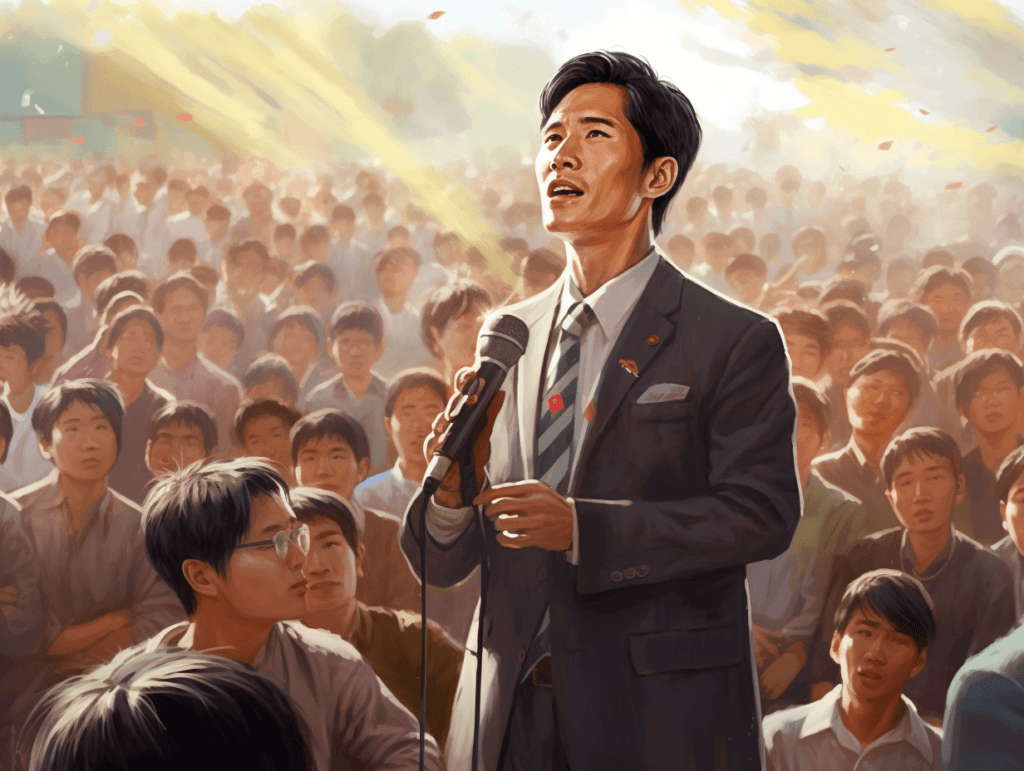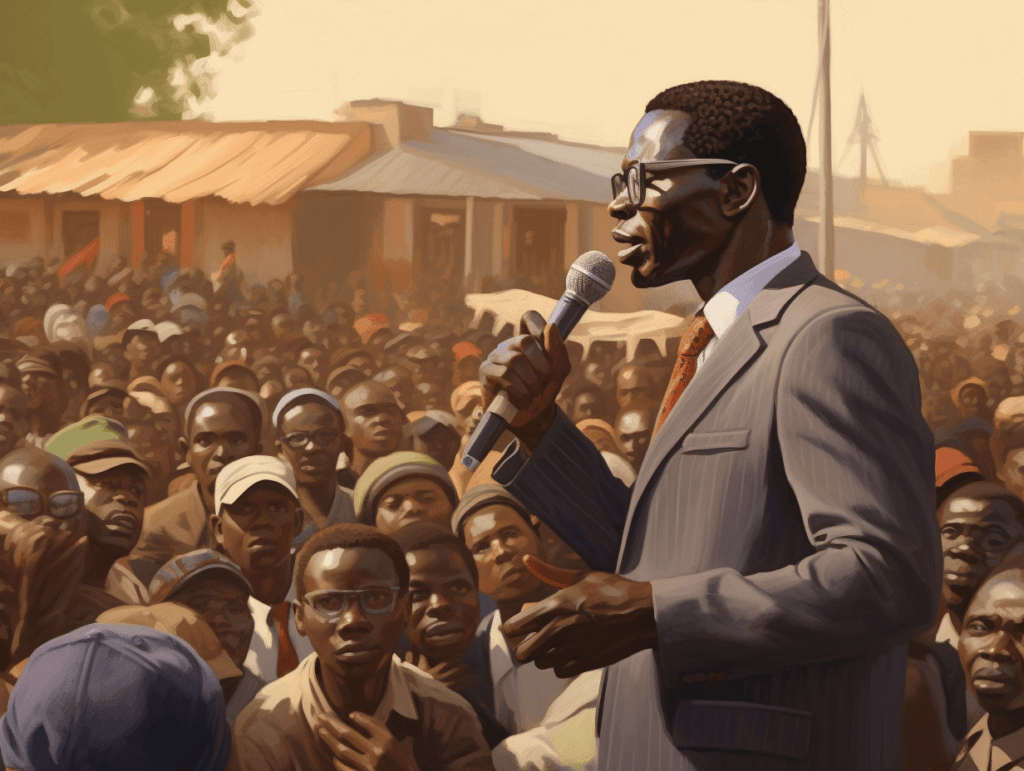Science
Traces of a Great Martian Lake: Did Life Once Thrive There?
12 February 2026

Napoleon Bonaparte is once said to have observed, “Always triumph. Regardless of the means, and you will always be deemed right.” With this statement, he conveyed the sentiment that in the realm of power, victory is paramount. The means to achieve this victory become secondary; it is the final outcome that truly matters. While Bonaparte was not the first voice in European history to suggest that “the ends justify the means,” or that supreme success is the highest virtue, one must ponder: was he correct in this assertion? Rooted in a spectrum of values, can we genuinely endorse such a view? What then is the ideal balance between politics and ethics?
Esteemed philosophers from ancient Greece, such as Socrates, Plato and Aristotle, delved into this very inquiry. Socrates (d. 399 B.C.E.), often regarded as the father of classical ethics, was known for his method of questioning and his pursuit of truth, suggesting that true understanding of what is beneficial for the state and its citizens lay in philosophical inquiry. Plato (424–348 B.C.E.), a student of Socrates, echoed this sentiment, emphasizing that politics and philosophy revolve around the concept of “the good.” In his vision of an ideal state, Plato posited that philosophers alone should wield power. Aristotle, the student of Plato and the third philosopher in this illustrious lineage believed that humans, by their very nature, are inclined towards social cohesion. Describing them as “zoon politikon” (political beings), he asserted that their highest fulfillment is found in the public sphere.
These venerated figures in Greek philosophy ardently endorsed the integration of moral values into public life. They believed that the architecture of a state and its governance should manifest these values. This ideology was carried forward in medieval philosophy, epitomized by St. Augustine (354–430 C.E.), who proposed that earthly societies should mirror the divine design of the Kingdom of God, thus reinforcing the connection between politics and ethics.
A groundbreaking shift emerged with the insights of Niccolò Machiavelli (1469-1527), an Italian diplomat, socio-political theorist, and figure associated with the renowned Borgia court. Machiavelli boldly challenged the prevailing idealistic perspectives concerning the relationship between ethics and politics. His seminal work, “The Prince,” not only examined these paradigms in depth but has also served as a guide for global leaders across centuries. What insights did Machiavelli embed in his opus that shaped it into a timeless manual for statesmanship?

Machiavelli sharply differentiates politics from ethics. He contends that a state’s primary role is not to educate its citizens or instill ethical standards. Observations from his time in Cesare Borgia’s court and his experiences with the Florentine Republic emphasize this separation. To Machiavelli, politics is fundamentally about retaining power, which, once achieved, is constantly under threat. Therefore, a prince’s focus is less on lofty ideals and more on consolidating power to ensure both citizens’ welfare and national security.
Machiavelli’s counsel leans heavily on pragmatism. He values fear over love as a potent governing tool and famously advises that rulers embody both the fox’s and the lion’s qualities for leadership. To him, the hallmark of a successful politician is efficacy, and the means to attain it, no matter how questionable, become secondary. This acceptance of “the ends justify the means” insinuates that any governing strategy, if successful, is both valid and acceptable. If objectives demand skirting laws or ethical norms, it is not just allowed but sometimes essential.
The pragmatic approach Machiavelli espouses, both in his time and today, sparks intense discussion and critique. Concerns emerge over the boundaries of bending laws and ethics for political benefit. Who sets these boundaries, and what sacrifices are justifiable for political aims? Does separating values from governance truly serve the greater good? And does Machiavelli’s viewpoint unintentionally endorse moral relativism, lacking a firm ethical foundation?
Machiavelli’s insights, encapsulated in his treatises, have profoundly influenced numerous rulers, leaders, and politicians over centuries. Notably, in the 17th century, Queen Christina of Sweden was among the early monarchs to recognize and appreciate Machiavelli’s ideologies. Benito Mussolini, an avid reader of “The Prince,” viewed it as a quintessential guide for statesmen. U.S. Presidents John Adams and Bill Clinton also openly acknowledged the worth of the Florentine diplomat’s writings. Additionally, Napoleon Bonaparte, known for frequently referencing Machiavelli, is reputed to have always carried a personally annotated copy of “The Prince.” Observing modern politics, Machiavelli’s ethos seemingly permeates various public institutions, influencing successive generations. This perpetual relevance likely stems from his insights into the eternal dynamics of power.
However, one must reflect: are Machiavelli’s foundational beliefs, which advocate for leaders unbound by moral restraint, truly reflective of reality? It is crucial to recognize Machiavelli’s somewhat pessimistic view of human nature. He believed most people to be ungrateful, fickle, and deceitful, offering loyalty when safe but retracting it when faced with imminent threats. Does this portrayal accurately encapsulate everyone? Or might such a broad generalization be misleading, as many among the described surely exhibit varied values and priorities?

Machiavelli’s claim that a consistently honorable person will be overshadowed by many who are not is intriguing. From this standpoint, he recommended mastering strategic moral flexibility, employing or reserving it based on circumstances. This perspective raises questions: Is humanity genuinely so morally flexible, often failing to uphold its values? Do most capitulate to the majority’s stance, compromising ethics when confronted with external pressures? And should the ability to modulate kindness and empathy be regarded as a strength or weakness, especially when rooted in a steadfast value system?
The interplay between politics and ethics is intricate, as illustrated by Machiavelli’s views that posit power’s primary goal as self-preservation. This sentiment is echoed in George Orwell’s “1984” with the statement, “power is not a means; it is an end.” Considering “1984” depicts the stark reality of a totalitarian regime, embracing such a perspective might indeed lead to overarching moral considerations being sidelined in governance.
However, it could be wise to envision alternative objectives for politics, such as serving humanity and, as a natural extension, bearing responsibility for the community one leads. By moving beyond Machiavelli’s premise—that power’s primary goal is its own preservation—and adopting a stance where authority serves the greater good, we open the door to governance rooted in values. In this context, responsibility extends beyond a mere legal obligation to encompass a deeper moral duty. Responsible governance then becomes an implicit promise politicians make to their electorate and, on a larger scale, to the society they represent.
Embracing this perspective, which casts authority as a service, necessitates the recognition that effective governance, anchored in well-defined principles and values, is imperative for those in positions of power. While Machiavelli seems to project a somewhat monolithic view of morality in politics, emphasizing its darker facets like dishonesty, animosity, jealousy, corruption, and nepotism, understanding the historical milieu that informed his observations offers clarity to his stance.

A pivotal question emerges: Were the circumstances that shaped Machiavelli’s perspectives on power, politics, and ethics influential enough to bias his objectivity? Perhaps humanity is not as universally base and malevolent as Machiavelli painted it. Perhaps politics and ethics are not innately adversarial. At the heart of the matter, the individual’s choices and decisions define their role in politics and how they exercise their given authority.
Interestingly, and as a word of caution against overly romanticizing the pragmatic approach of the Italian philosopher, the 20th century saw the term “Machiavellianism” integrated into psychology. This personality trait embodies an attitude characterized by cynicism and a ruthless drive towards personal ambitions. Those exhibiting Machiavellian tendencies are bereft of deeper sentiments, manipulate others for personal advantage, regard people merely as tools for their ends, and sustain distant interpersonal relationships. Such personalities often neglect the needs of others, radiating mistrust and contempt. In light of this, we would do well to remember the words of the esteemed Russian novelist and Nobel laureate, Aleksandr Solzhenitsyn (1918-2008): “Unlimited power in the hands of limited people always leads to cruelty.”